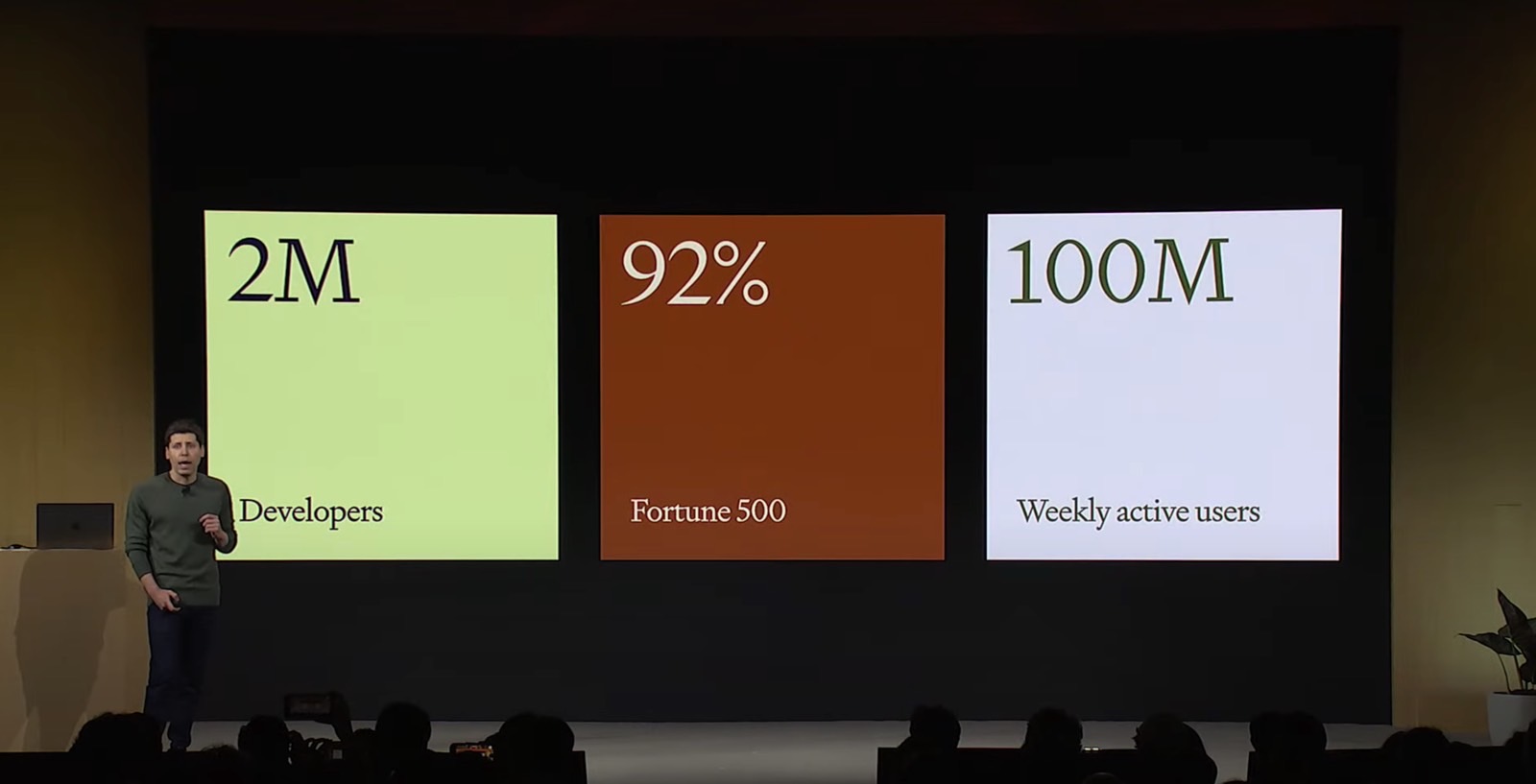The iPhone revolutionized the mobile industry in 2007, but the key iPhone feature that turned the smartphone into the most important personal computer in our lives was the App Store that came a year later. Longtime iPhone users will remember that the App Store wasn’t a part of Apple’s initial iPhone vision. Steve Jobs famously resisted the idea before seeing the light.
As a longtime iPhone user myself, I can’t envision an iPhone experience without third-party apps. I use some of those apps more than the apps that come with the iPhone.
I think the same will apply to ChatGPT in the near future. We’re approaching the era of personal AI experiences, where we’ll see custom AI programs handling specific tasks rather than a single chatbot being an all-knowing resource.
It’s all starting with the custom GPTs that OpenAI announced about a month ago. Interestingly, this ChatGPT mimics the iPhone App Store upgrade. It’s coming about a year later.
But OpenAI decided to further postpone the release of its GPT store functionality. Given the recent developments, I think that’s all for the best. And it’s not just about the Sam Altman drama we’ve witnessed in the past few weeks.
ChatGPT Plus is still sold out
Sam Altman announced the custom GPTs at DevDay in early November. He also announced plans to release a custom GPT store and a revenue-sharing program.
The GPT storefront should have launched by the end of November. Then, OpenAI pushed it to December. But now the release has moved to a generic “early next year” timeframe. The reveal comes from an email OpenAI sent out to ChatGPT Plus users who signed up for the GPT Builder program.
OpenAI said that “a few unexpected things have been keeping us busy,” derailing plans to launch the GPT Store this month. It’s possible that OpenAI is referring to the Sam Altman firing and rehiring process. There’s also a new board and an investigation into what happened between the CEO and the former board.
But there might be different reasons why OpenAI postponed the launch of custom GPTs. First, ChatGPT Plus remains sold out, as OpenAI has reached capacity for premium users. ChatGPT users with great ideas for custom GPTs can’t make them until ChatGPT Plus registration reopens.
Also, only ChatGPT Plus users can use custom GPTs right now. I’d speculate that custom GPTs will be available to all ChatGPT users once the store launches. That’s the only way to successfully monetize the feature. But I also wouldn’t be surprised if the GPT Store required ChatGPT Plus access initially.
Maybe OpenAI needs more time to build up capacity for new ChatGPT Plus signups.

The privacy worries
Now, I did say it’s for the best OpenAI postponed the GPT Store release, and that has nothing to do with ChatGPT Plus availability.
A somewhat disturbing research paper emerged a few days ago, revealing that custom GPTs do not protect the privacy of the prompts used to create them. Unlike iPhone apps, anybody can create custom GPTs, as there’s no coding involved. But you have to provide certain instructions to the bot and even supply documentation the bot will use to perform its custom task.
If anybody can fool ChatGPT into revealing the prompt or making the documents available for download, they can create similar custom GPTs. Or they can create similar, more nefarious versions of a popular bot. Not to mention the privacy aspect. Some of those documents you’d upload might contain proprietary information that GPT builders would not want to share.
It looks like OpenAI is aware of this problem. At least that’s what the aforementioned email to GPT Builders suggests (via The Verge):
We are continuing to make improvements to GPTs based on your feedback. To improve Actions, we updated the configuration interface, enabled one-click testing, added debug messages in the preview, and now allow multiple domains. There have also been questions around uploaded files. Uploaded files are downloadable when using Code Interpreter, so we’ve made this feature default off and added messaging to better explain this. If you have additional feedback, we’d love to hear from you here.
From the wording of the mail, it looks like OpenAI is taking steps to address some of the privacy issues the research surfaced. Preventing people from learning the “source code” of custom GPT is key to the success of these bots, and I use source code loosely here.
But imagine a scenario where a company would create custom GPTs for employees or specific clients. They would not want their potentially sensitive documentation leaked via ChatGPT jailbreaks the researchers discovered.
The financial success of a future GPT Store actually hinges on ensuring that the GPT builders can create unique, functional, custom GPTs that can’t be replicated with ease.








